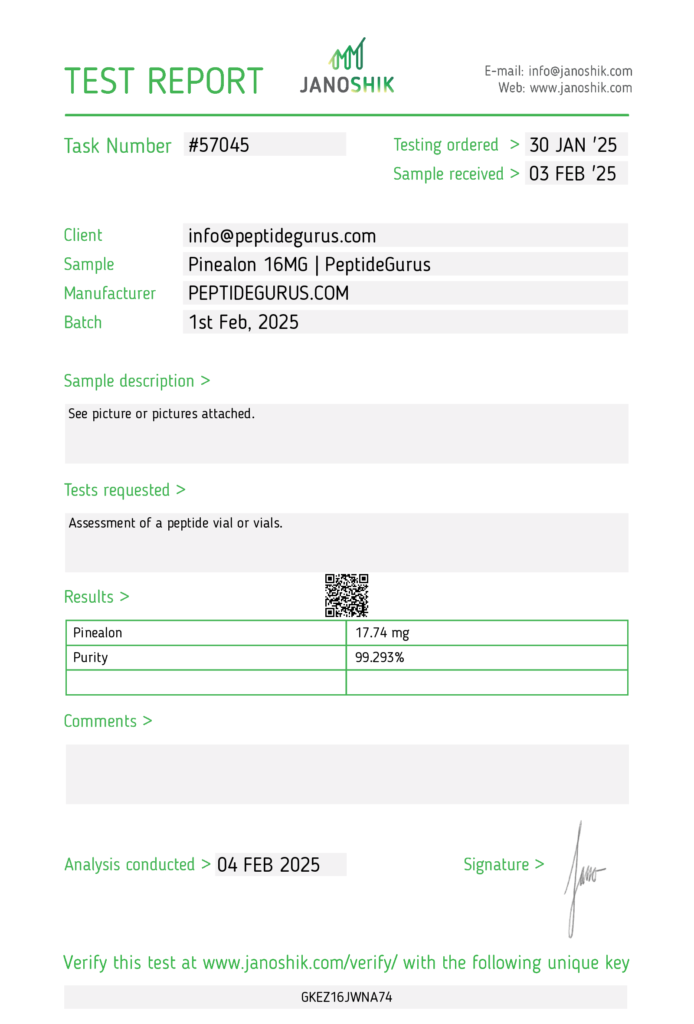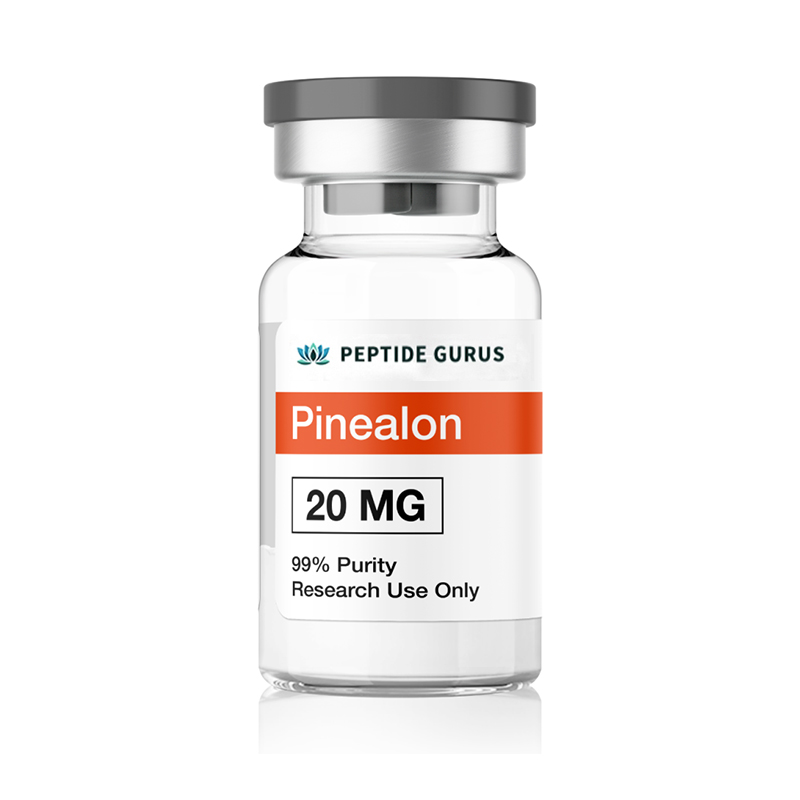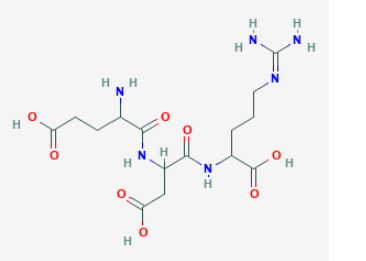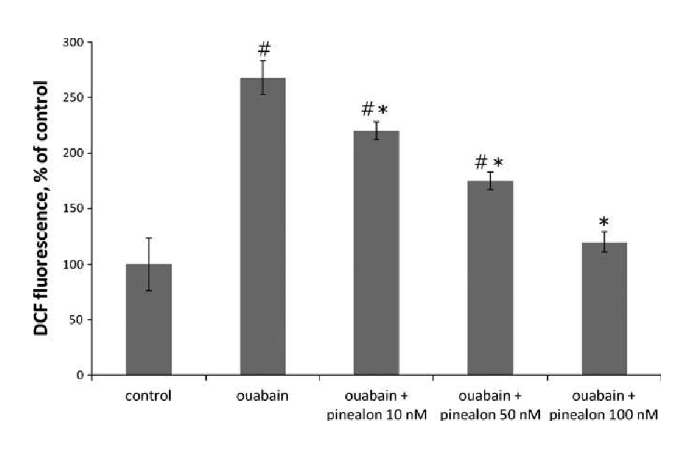




카테고리 :펩티드 바이오 리그이터
유리 (1) 30 ml 세균성 물
자격을 갖춘 주문이 있습니다$ 500 USD.
(캡슐 제품, 미용 펩티드, 프로모션 코드 및 배송 제외)
PIEALON은 길이가 3 개의 아미노산에 불과한 합성 펩티드입니다. 저산소증의 영향에 대해 행동을 수정하고 다수의 세포 유형을 보호하는 것으로 나타났습니다. 그것은 일주기 리듬을 변화시키고 기억을 향상 시키며 학습을 향상시키는 능력에 대한 광범위한 연구를 거쳤습니다. 특히 중추 신경계에서 노화의 영향을 상쇄하는 것으로 나타 났으며 알츠하이머 병과 같은인지 장애를 치료하는 데 유용 할 수 있습니다.
제품 사용 :이 제품은 연구 화학 물질로만 의도 된 것입니다.이 명칭은 시험 관내 시험 및 실험실 실험에만 연구 화학 물질을 엄격하게 사용할 수있게한다. 이 웹 사이트에서 제공되는 모든 제품 정보는 교육 목적으로 만 사용됩니다. 인간이나 동물에 어떤 종류의 신체적으로 소개되는 것은 법에 의해 엄격히 금지되어 있습니다. 이 제품은 라이센스가 부여 된 자격을 갖춘 전문가 만 처리해야합니다. 이 제품은 약물, 음식 또는 화장품이 아니며 약물, 음식 또는 화장품으로 잘못 브랜드화되거나 잘못 사용되거나 오해가되지 않을 수 있습니다.
PIEALON은 단 3 개의 아미노산으로 구성된 짧은 펩티드입니다. 그것은 유전자 발현 수준을 변경하기 위해 DNA와 직접 상호 작용하는 능력에 대한 펩티드 바이오 리그이터로 지칭되는 소수의 합성 펩티드 중 하나이다. 송과는 행동 변형과 관련이 있으며 저산소증의 영향에 대해 뉴런을 포함한 여러 세포 유형을 보호하는 데 도움이되는 것으로 생각됩니다. 송과선에 직접적인 영향을 미치면 송과는 약물 대사, 일주기 리듬 장애, 기억, 학습 등의 문제를 줄일 수 있습니다.

순서:glu-asp-arg
분자식 :기음15시간26N6영형8
분자량 :418.407 g/mol
Pubchem CID : 18220191
동의어 :Glutamylaspartylarginine, T-33 펩티드
대부분의 펩티드와 달리, 송과는 세포 표면 또는 세포질 수용체에 결합하지 않는 것으로 보인다. 이로 인해 과학자들은 짧은 펩티드가 어떻게 영향을 미칠 수 있는지 궁금해했습니다. 과거에는 송과가 지질 이중층 (예를 들어, 세포막, 핵막)을 건너기에 충분히 작을 수 있으며, 따라서 DNA와 직접 상호 작용할 수 있다고 제안되었다. 세포 배양 (HeLa 세포)에서의 시험은 송과가 DNA와 상호 작용하기 위해 핵막뿐만 아니라 세포막과 직접 침투한다는 것을 나타냅니다.[1]. This makes pinealon a regulator of gene expression and explains the peptide’s myriad effects that cannot be explained by receptor interactions.
Pinealon may have anti-aging effects in the central nervous system. Research from Russia indicates that pinealon and a similar peptide, vesugen, are anabolic in the brain and can actually slow the rate of aging when calculated using biological age indicators[2].
Pinealon is active in cells outside of the central nervous system as well. Research shows that the peptide also has effects on muscle cells where it alters the expression of irisin[3]. Irisin is important to protecting muscle cells during exercise, promotes fat burning, and is thought to induce telomere elongation as well. By increasing the lifespan of irisin, pinealon boosts telomere protection and helps to fight off the effects of aging and oxidative stress. In fact, plasma irisin levels are directly linked to telomere length in healthy adults and levels of the enzyme have been directly linked to calorie restriction, one of the few activities known beyond doubt to prolong life and improve overall fitness[4]. Interestingly, there is evidence that irisin is active outside of muscle cells and that pinealon may therefore have anti-aging effects that are broadly distributed throughout the body, including the brain.
Research in prenatal rats indicates that pinealon protects neurons against oxidative stress and thus protects cognitive function and motor coordination[5]. The study showed marked decreases in both reactive oxygen species accumulation as well as number of necrotic cells in the brain in these rats. In other words, pinealon protects neurons from dying.
The findings of the prental rat study discussed above have been confirmed in separate studies and extended in others. Confirmation that pinealon protects against reactive oxygen species and reduces necrotic cell death also came with the understanding that the peptide modifies the cell cycle as part of its protection against cell death[6]. This was one of the first indications that pinealon was almost certainly interacting at the level of DNA. Interestingly, pinealon modulates the cell cycle by activating proliferation pathways. Under normal circumstances, this would lead to an increase in cell number, but under the setting of oxidative stress, this effect simply offsets some of the damaging effects of reactive oxygen species.

Research in adult rats deprived of oxygen has also shown that pinealon increases the resistance of neurons to hypoxic stress. It appears to do this by stimulating innate anti-oxidative enzyme systems and limiting the excitotoxic effects of N-methyl-D-aspartate[7]. N-methyl-D-aspartate (NMDA) is an amino acid derivative that can kill nerve cells by over-exciting them. NMDA has been shown to become overactive during withdrawal from alcohol and is at least partly responsible for the “shakes” or delirium tremors that affects chronic alcoholics during withdrawal. NMDA has been linked to nerve death in traumatic brain injury and ischemic stroke.
Irisin, which has been discussed in the context of muscle cell protection, has recently been found in the brain where it plays important roles in neural differentiation, proliferation, and energy expenditure. Irisin levels in the central nervous system has been found to stimulate genes in the hippocampus that are important to memory, learning, the overall neuron health[8]. Research in rats suggests that exercise directly boosts levels of irisin in the brain, which may finally provide the link between physical activity and cognition. Scientists have speculated that irisin is the messenger that mediates crosstalk between skeletal muscle and the central nervous system during exercise. Pinealon boosts levels of irisin by altering expression of the gene that codes for the enzyme. This leads to increased levels of irisin through prolonged lifespan of the enzyme.
Research in cultures of brain cortex cells indicate that pinealon can boost expression of 5-tryptophan hydroxylase via epigenetic changes. 5-tryptophan hydroxylase is critical to the production and secretion of serotonin, a peptide known to have neuroprotective and geroprotective features[9]. It is also the signaling molecule most often targeted by anti-depressive drugs called selective-serotonin reuptake inhibitors (SSRIs). SSRIs have a number of side effects, however, and the ability to boost serotonin production organically could offer a means of fighting depression that is more physiologic and thus reduce side effects.
The initial understanding that pinealon could affect the cell cycle came from research into the effects of the peptide in rat models of ischemic stroke. These studies revealed that pinealon affects cytokine signaling that normally leads to an increase in levels of the caspase-3 enzyme[10]. Caspase-3 is directly responsible for initiating apoptosis, or the controlled death of a cell via genetic instruction. By modulating caspase-3, pinealon shuts down at least one pathway to cell death and thus reduces the effects of oxygen deprivation during stroke.
Caspase-3 is not only active in neurologic tissue though, it is almost universal. Research using models of heart attack indicates that pinealon may reduce caspase-3 levels following myocardial infarction[11]. The short peptide may have application both in treating heart attack and in preventing the long-term remodeling that causes so much dysfunction following a myocardial infarction.
The benefit of pinealon in suppressing caspase-3 expression has been demonstrated in skin cells. By reducing apoptosis in the skin, pinealon promotes cell proliferation in both young and old animals alike. This leads to an increase in the regenerative process and has been shown to offset age-related pathology in the skin[12]. Pinealon may eventually form part of a multi-faceted approach to wound healing and could have application in everything from sun protection to serious burn treatment.
It should come as no surprise, given its names, that pinealon affects that sleep-wake cycle as well as sleep behavior. Research indicates, that pinealon may help to regulate the dysfunction caused by shift-work and other activities (e.g. long-distance travel) that interfere with normal sleep patterns. The peptide actually appears to reset the pineal gland to baseline in the setting of circadian rhythm disruption, improving sleep, depression, mood, blood pressure, and more as a result[13].
The ability to regulate sleep actually corresponds strongly with rates of aging. Disturbed sleep is a recipe for disaster in the body and affects cognition, cardiac health, wound healing, mood, and more. Pinealon may therefore help to reduce the impact of sleep disturbance and thus offset the effects that it has on aging. This could be beneficial not only to those forced into disorder sleep due to their jobs, but to individuals suffering from organic disease that impacts sleep-wake cycles.
Pinealon exhibits minimal side effects, low oral and excellent subcutaneous bioavailability in mice. Per kg dosage in mice does not scale to humans. Pinealon for sale at
The above literature was researched, edited and organized by Dr. Logan, M.D. Dr. Logan holds a doctorate degree from Case Western Reserve University School of Medicine and a B.S. in molecular biology.

Vladimir Khavinson is a Professor, President of the European region of the International Association of Gerontology and Geriatrics; Member of the Russian and Ukrainian Academies of Medical Sciences; Main gerontologist of the Health Committee of the Government of Saint Petersburg, Russia; Director of the Saint Petersburg Institute of Bioregulation and Gerontology; Vice-president of Gerontological Society of the Russian Academy of Sciences; Head of the Chair of Gerontology and Geriatrics of the North-Western State Medical University, St-Petersburg; Colonel of medical service (USSR, Russia), retired. Vladimir Khavinson is known for the discovery, experimental and clinical studies of new classes of peptide bioregulators as well as for the development of bioregulating peptide therapy. He is engaged in studying of the role of peptides in regulation of the mechanisms of ageing. His main field of actions is design, pre-clinical and clinical studies of new peptide geroprotectors. A 40-year-long investigation resulted in a multitude of methods of application of peptide bioregulators to slow down the process of aging and increase human life span. Six peptide-based pharmaceuticals and 64 peptide food supplements have been introduced into clinical practice by V. Khavinson. He is an author of 196 patents (Russian and international) as well as of 775 scientific publications. His major achievements are presented in two books: “Peptides and Ageing” (NEL, 2002) and “Gerontological aspects of genome peptide regulation” (Karger AG, 2005). Vladimir Khavinson introduced scientific specialty “Gerontology and Geriatrics” in the Russian Federation on the governmental level. Academic Council headed by V. Khavinson has oversighted over 200 Ph.D. and Doctorate theses from many different countries.
Prof. Vladimir Khavinson is being referenced as one of the leading scientists involved in the research and development of Pinealon. In no way is this doctor/scientist endorsing or advocating the purchase, sale, or use of this product for any reason. There is no affiliation or relationship, implied or otherwise, between
The products offered on this website are furnished for in-vitro studies only. In-vitro studies (Latin: in glass) are performed outside of the body. These products are not medicines or drugs and have not been approved by the FDA to prevent, treat or cure any medical condition, ailment or disease. Bodily introduction of any kind into humans or animals is strictly forbidden by law.
PeptideGurus is a leading supplier of American-made research peptides, offering top-quality products at competitive prices. With a focus on excellence and customer service, they ensure a secure and convenient ordering process with global shipping.
CONTACT